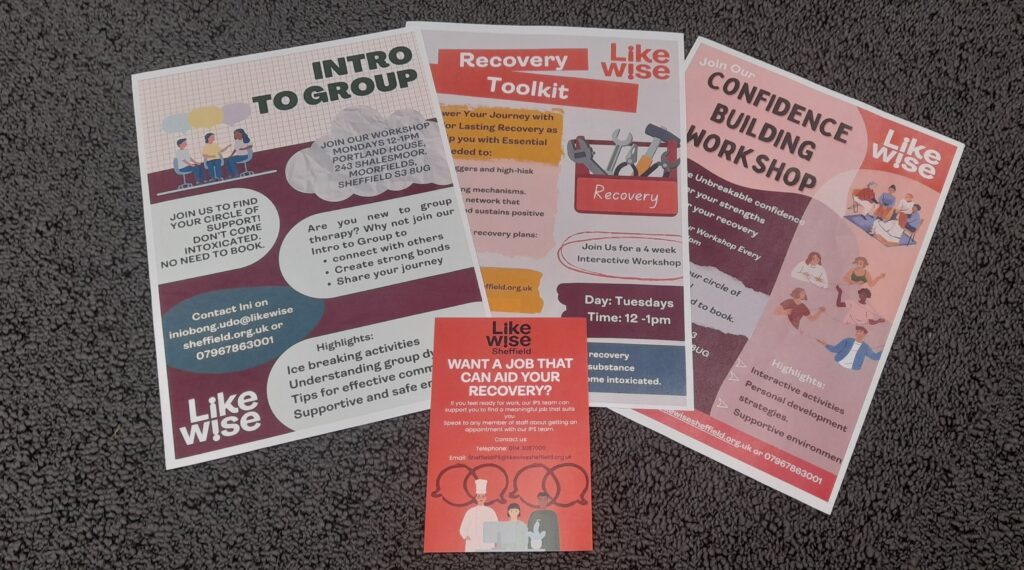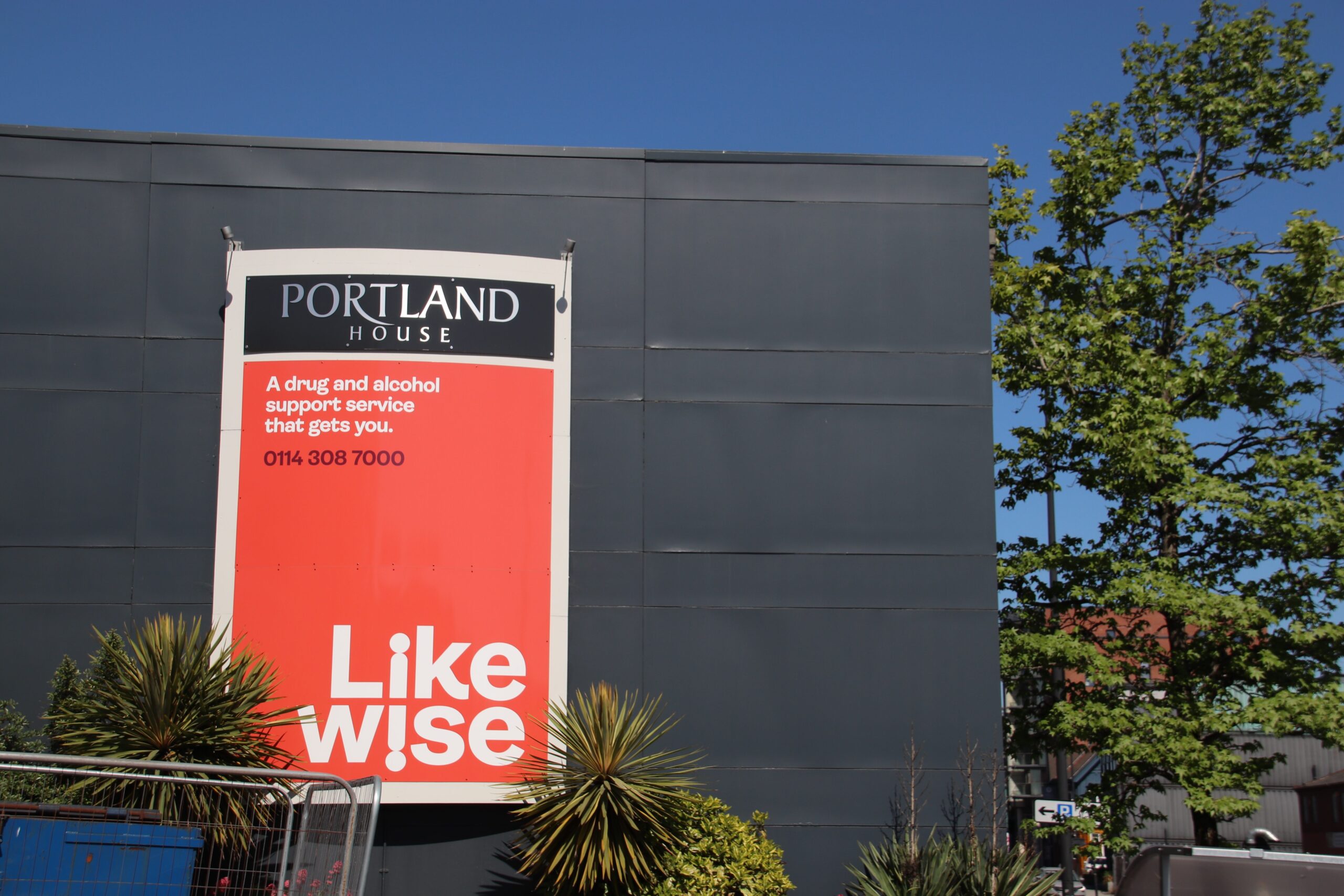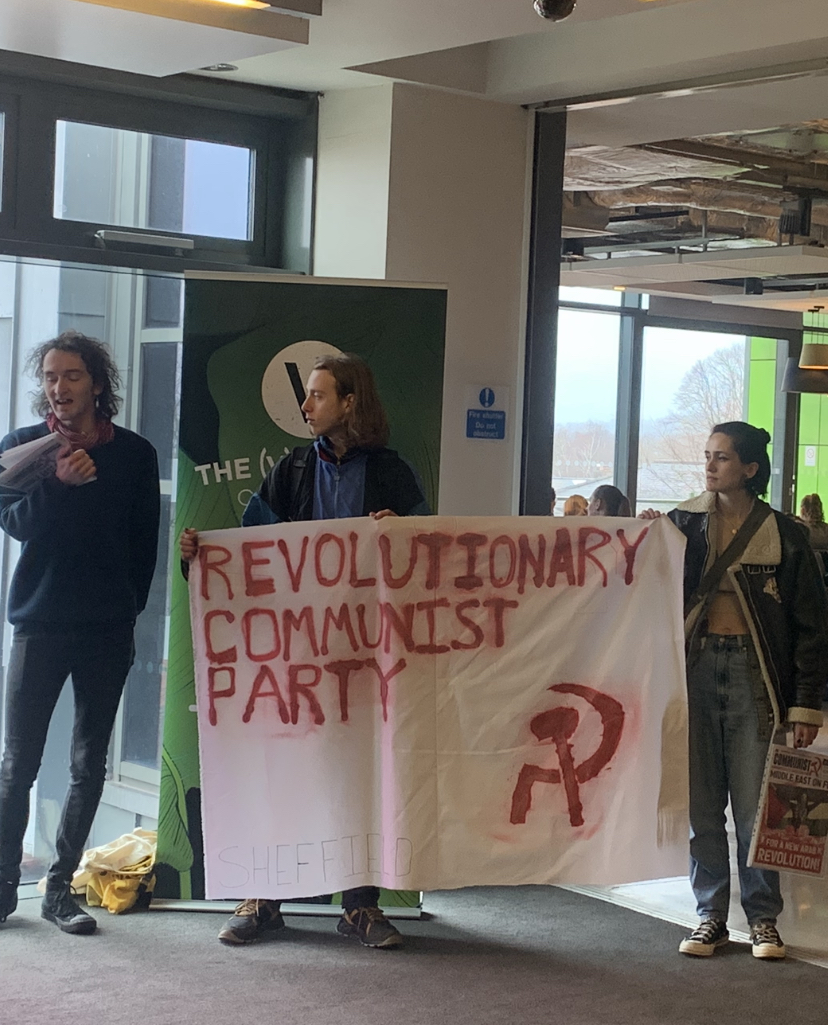The recovery room is closed off when I arrive at the Likewise Sheffield recovery centre – renovation works, they tell me at the reception.
Formerly the general hub for the centre’s Group Community Workers, they’ve found themselves relocated for the interim to a series of small offices on the upper floor. It’s in one of these offices, a fan at the windowsill and timetables pinned to the walls, that I find the LGBTQ+ outreach team.
“This is the third week of works on the recovery room,” Rosie*, one of the workers, tells me. “It was a fantastic space in there.”
“It’s like we’re squatters,” Martin*, the team leader, jokes, though adding that they look forward to taking advantage of the new and improved facilities.
The room is set to reopen today, and the free Breakfast Club service provided by the charity along with it – but location and accessibility remain persistent challenges for the team’s work, as they explain to me later.
Likewise is a drug and alcohol support service, formed through a partnership between two charities, Waythrough and Project 6. It aims to offer tailored recovery plans for people from all walks of life, on the basis of one-to-one support and harm reduction.
Martin, who cut his teeth at the Likewise centre in Bradford before transferring to Sheffield last year, describes the overall thrust of the service’s approach as “recovery navigation”. It aims to offer people a pathway to achieving their own personal goals in their relationship to addictive substances.
Many of their volunteers, he tells me, are recruited directly from people who’ve successfully recovered from drug and alcohol addictions. Several of the team’s members are not currently out to their families, for reasons of privacy or personal safety.
The outreach workers offer a range of programmes targeted towards queer people, from gym sessions to candle-making classes; their mixed martial arts classes are apparently especially popular.
Other efforts seek to bring awareness of alcohol treatment to the LGBTQ+ community directly. They operate an online queer-friendly recovery advice service, and Sarah*, the third worker I spoke to, is set to deliver a talk next week at a meeting of young people organised by SAYiT, a queer youth charity based in Sheffield.
Their work has been complicated by the fact that, from what they’ve seen on the frontlines, many queer people are highly reluctant to engage with alcohol support services. Medical trauma and distrust of the medical system discourage many from seeking help, and those who do often do so while closeted, complicating the figures on the books.
“We believe that a lot of them are suffering in silence,” Martin says. “We’re trying to find out what barriers there are, and what we can do to make it more accessible.”

A set of brochures from Likewise Sheffield. Credit: Caitlin James and Daniel Thomas
An internal survey by the team identified several factors impeding their work. One of the most significant, Sarah says, is government policy. Martin castigates the recent Supreme Court ruling limiting the definition of “sex” in the Equality Act, and its consequences for transgender people.
He tells me: “The ripple effect in the next couple of months or years is going to be horrendous. That policy, now, is going to deepen the distrust that trans & non-binary people have against the government and the medical sector.”
Location is another issue as the concentration of services in a single recovery hub, they believe, also makes many queer people seeking recovery reluctant to engage. The stigma surrounding substance addiction is often compounded by people’s struggles with homophobia and transphobia, which deters some from seeking treatment.
What’s more, they find that the urban location of the hub can also pose a challenge. Addicts of all sexualities are more likely to be unemployed, and frequently live in South Yorkshire’s urban periphery – in smaller towns, from which the city centre can be difficult to access via public transport.
To reach them, Likewise has been trialling a number of initiatives and partnerships. “We’re trying to take the services out to them”, Martin says, telling me that they’ve collaborated with a range of institutions, from libraries and community centres to the Muslim community.”
One area where their collaboration has been limited is with the NHS. Sarah tells me: “We’ve done a few charity events for hospitals – some walks and that,” and Martin speaks positively of his good working relationship with GPs in both Doncaster and Sheffield. However, their main interaction with local hospitals and other medical services is generally limited to referrals, for patients suffering from cirrhosis and other liver conditions.
Do they have enough resources to do their jobs? Overall, they’re positive about the trajectory of alcohol support outreach, and the capacity of services such as Likewise. “They can compete with any other service that you think of, globally,” they tell me.
But the workers remain deeply concerned that they may be failing to help LGBTQ+ people who desperately need it, and painfully aware of the barriers that remain in place. Sarah laments, “We’re finding it hard to reach a lot of queer people.”
Despite these struggles, they remain optimistic about the good their community work does – and will continue to do. “If you compare our services in South Yorkshire with those from ten years back, there’s a huge difference,” Martin says.
He still fears, however, that wrongheaded government policy will continue to “destroy” all their progress so far, even if state support remains constant.
“It’s one thing to have the right services in place,” he tells me. “It’s another thing for people to choose to use them.”
*Names changed for anonymity.



